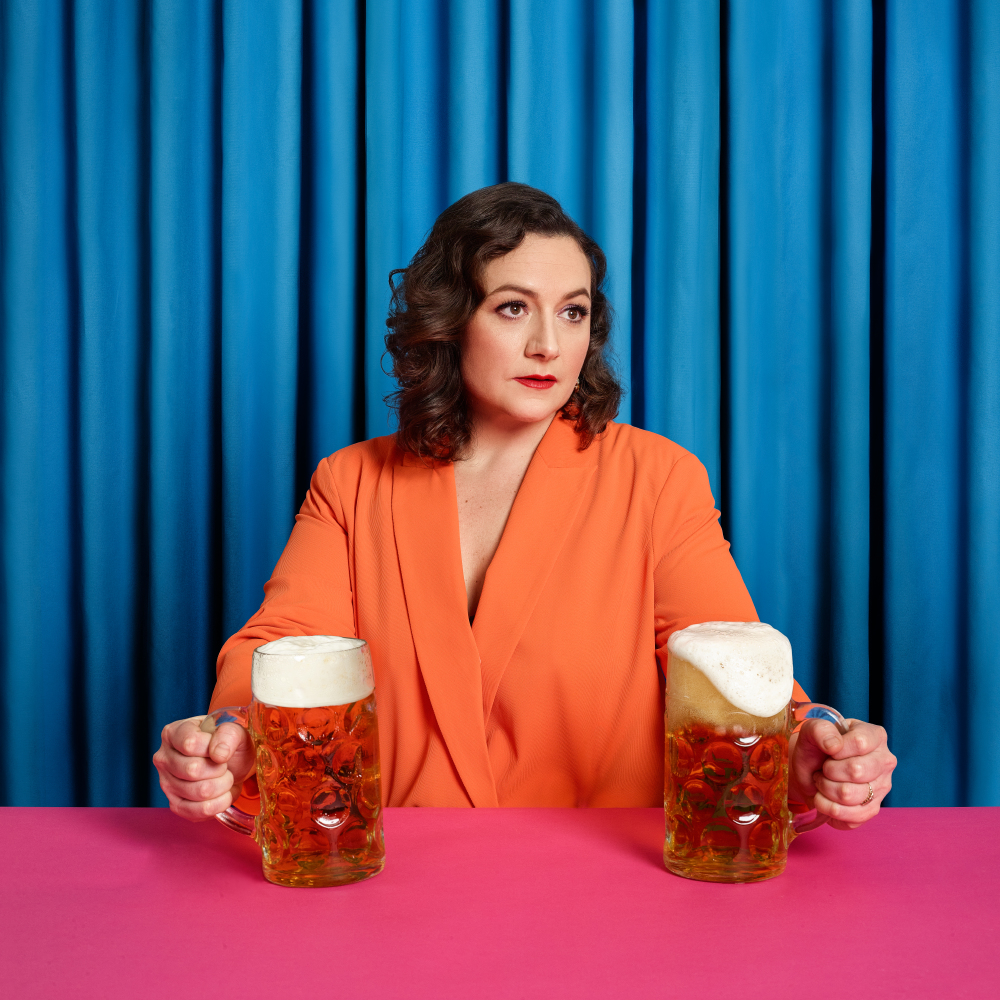The first recorded use of the phrase ‘laughter is the best medicine’ was 1611, which makes sense because that’s over 200 years before they discovered penicillin.

Jess Fostekew by Mark Stronge
Don’t get me wrong, laughter is great but it’s not going to fix anyone’s deadly, infected flesh wound. I do think it helps keep my mental health in check, however. It’s nice to have a job which means I’m always looking for the slightly wonky, humorous angle, even on the most devastating news. There’s a misconception, I believe, that it’s disrespectful to laugh about sad, awful things. I think it’s human instinct to crave that relief, that breaking of tension. Ironically it doesn’t always mean you’re not taking the bad thing seriously, it often means you’ve given it loads of thought.
Saying that, I think there’s a general consensus amongst therapists, the ones I’ve had anyway, that making something funny is sometimes a way of avoiding facing the reality of your emotions about it. So I try and make sure I don’t turn anything into comedy until I’m past the initial point of burning-hot-brand-new-unprocessed-mega-feelings about it. So sometimes that means waiting years. But wait too long, and it’s possible to be too ‘over it’. For me, I need to still care about the story I’m making comedy out of, for it to still end up being compelling and ultimately, funny. There’s a sweet spot I think, of when to don stand up about things. I had a really traumatic birth experience with my son, 6 years ago, during which I begged to die. I screamed at the midwife “KILL ME AND KILL MY BABY.” Even as I was howling that, one tiny deeply buried atom of me was thinking ‘that’s quite a funny thing to shout actually, Jess.’ He was three when I turned that into one of my favourite routines I’ve ever had. Any earlier and I’d have risked crying on stage every night and any later and well, it would feel too old a story to still feel relevant.
I developed that birth story into a bit of material which was part of my last show, Hench. Which went well, so I went on to tell it at hundreds of times at fringe dates, tour dates and even as part of a radio show and a TV stand up special. Later I learned that there’s a genuine therapeutic method called ‘trauma narratives’ whereby you tell the story of your trauma again and again, as part of processing the pain and eventually, hopefully, healing. How wild, I thought, I’ve done that purely by accident with my birth story, by virtue of my silly job.
That’s the greatest example I’d say of how comedy helps my mental health, as someone who gets to make comedy. I feel incredibly lucky. In my new show, Wench, I’ve made comedy about stumbling into queerness as an adult and how much I’ve changed in the last few years. I worry now I’m telling you this that I’ve missed a trick there by not incorporating a bit where I get to shout “KILL ME AND KILL MY STRAIGHTNESS”.
Jessica Fostekew: Wench is at Monkey Barrel Comedy in August at the Edinburgh Fringe Festival

